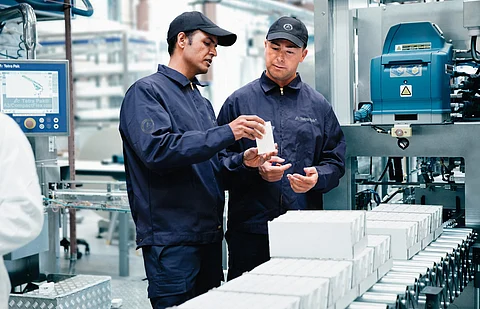
- Home
- EventsEvents
- Product Launches
- CategoriesCategories
- Advertise
- Opinion

Turning a dream into reality requires preparation and strategy. A student who wants to become a doctor needs to dedicate himself intensely to his studies; a soccer player who aspires to be a great professional athlete needs to stay focused on training. But what about a startup that plans to launch a product on the market? In this scenario, Tetra Pak connects startups with co-packers, who have an installed base and work in the bottling of various beverages, to bring their ideas to fruition.
Adopting the co-packing model brings numerous benefits: startups and producers gain flexibility to innovate and expand, while meeting growing demands for sustainability. Outsourcing production enables greater efficiency, while promoting responsible practices, such as reducing waste and optimizing the use of resources.
In response to new priorities and consumption habits, the market has evolved to meet the demands of modern society. According to the results of the latest Tetra Pak Index 2023, a global study on food and beverage consumption behavior and trends, 70% of respondents stated that health has become more important in recent years. In addition, 54% believe that changing the way they eat can contribute to a better world. In other words, health and sustainability now go hand in hand in consumption choices.
This behavior is reflected in the growth of ready-to-drink whey product launches. According to Mordor Intelligence, the Annual Growth Rate (CAGR) of the whey protein market is expected to reach 8% by 2025 in the country. Brazil, responsible for almost 60% of the market in South America, stands out as an important player.
Over the past five years, nearly 30 brands of whey protein beverages have been launched on the Brazilian market using Tetra Pak packaging. Many of these brands belong to companies that, without their own plants, use the co-packing model. This strategy has proven to be essential: small, medium and large producers use Tetra Pak carton packaging to ensure quality and safety, operating through consolidated companies.
“Co-packing offers a flexible and affordable approach, enabling companies to test and launch new products in an agile and scalable way,” explains Danilo Zorzan, marketing director at Tetra Pak Brazil. “This solution eliminates the need for large investments in infrastructure, providing faster entry into new markets and reducing operational and financial risks.”
By working with co-packers, startups can access technical expertise and specialized equipment without having to invest in their own machinery. With the support of co-packer partners, these companies have access to advanced technologies and sustainable practices that meet consumer expectations for health and environmental responsibility. Whether it’s launching new products, expanding markets or adopting more conscious practices, co-packing is consolidating itself as a strategy to enable new entrants in the food and beverage industry.
Click HERE to subscribe to our FREE Weekly Newsletter
